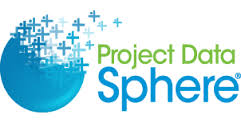Nature Biotechnology
See the following -
Liposomes Could be a Possible Alternative To Antibiotics
Scientists from the University of Bern have developed a novel substance for the treatment of severe bacterial infections without antibiotics, which would prevent the development of antibiotic resistance...
- Login to post comments
New Antibiotic Alternative Traps and Eats Bacterial Toxins
Researches in Switzerland have come up with what could be a viable alternative to antibiotics - cell structures called liposomes that can bait, trap and neutralise deadly bacterial toxins. As much trouble as we seem to be in right now due to the creeping issue of antibiotic resistance, imagine what the world would've looked like if the first antibiotic - penicillin - wasn’t discovered almost 90 years ago. We owe a great deal to this fungi-derived wonder-drug, but our absolute reliance on it has now put us at risk...
- Login to post comments
Remembrance of Things Past -- Bacterial Memory of Gut Inflammation
 The microbiome, or the collections of microorganisms present in the body, is known to affect human health and disease and researchers are thinking about new ways to use them as next-generation diagnostics and therapeutics. Today bacteria from the normal microbiome are already being used in their modified or attenuated form in probiotics and cancer therapy. Scientists exploit the microorganisms' natural ability to sense and respond to environmental- and disease-related stimuli and the ease of engineering new functions into them. This is particularly beneficial in chronic inflammatory diseases like inflammatory bowel disease (IBD) that remain difficult to monitor non-invasively...
The microbiome, or the collections of microorganisms present in the body, is known to affect human health and disease and researchers are thinking about new ways to use them as next-generation diagnostics and therapeutics. Today bacteria from the normal microbiome are already being used in their modified or attenuated form in probiotics and cancer therapy. Scientists exploit the microorganisms' natural ability to sense and respond to environmental- and disease-related stimuli and the ease of engineering new functions into them. This is particularly beneficial in chronic inflammatory diseases like inflammatory bowel disease (IBD) that remain difficult to monitor non-invasively...
- Login to post comments
Sage Bionetworks Releases First-of-its-Kind Data from Parkinson’s iPhone Study
 Sage Bionetworks, a nonprofit biomedical research organization, today released an unparalleled dataset that captures the everyday experiences of more than 9,500 people to help speed scientific progress toward treatments for people with Parkinson’s disease. The dataset, which consists of millions of data points collected on a nearly-continuous basis through the iPhone app mPower, will provide researchers with unprecedented insight into the daily changes in symptoms and effects of medication for people with Parkinson’s.
Sage Bionetworks, a nonprofit biomedical research organization, today released an unparalleled dataset that captures the everyday experiences of more than 9,500 people to help speed scientific progress toward treatments for people with Parkinson’s disease. The dataset, which consists of millions of data points collected on a nearly-continuous basis through the iPhone app mPower, will provide researchers with unprecedented insight into the daily changes in symptoms and effects of medication for people with Parkinson’s.
- Login to post comments
Two Years In, What Has Apple ResearchKit Accomplished?
In March 2015, Apple promised to change the way medical research could be done. It launched ResearchKit, which could turn millions of iPhones around the world into a “powerful tool for medical research,” the company said at the time. Since then, ResearchKit — software that gives would-be app developers a library of coding to create health apps on the iPhone and Apple Watch — has spawned a number of studies: One team has used it to create an app to track Parkinson’s symptoms; another is trying out a screening protocol for autism. A third helps people inventory the moles on their skin and evaluate how they have changed over time...
- Login to post comments
Winners Announced for Crowdsourcing and Data Sharing Competition to Drive Innovation in Prostate Cancer Research
 Industry leaders in biomedical research, oncology data sharing and computational science announced the winners of an innovative research challenge for prostate cancer using previously unavailable clinical data. The Prostate Cancer DREAM Challenge is the first research challenge in prostate cancer to marry crowdsourcing with data sharing, paving a new way to tackle key research questions about metastatic castration-resistant prostate cancer (mCRPC), an advanced form of the disease with poor outcomes. The Challenge called upon the cancer research and computational biology community to find solutions to key open clinical research questions about mCRPC and explore innovative research and modeling approaches. The three specific questions posed were to:
Industry leaders in biomedical research, oncology data sharing and computational science announced the winners of an innovative research challenge for prostate cancer using previously unavailable clinical data. The Prostate Cancer DREAM Challenge is the first research challenge in prostate cancer to marry crowdsourcing with data sharing, paving a new way to tackle key research questions about metastatic castration-resistant prostate cancer (mCRPC), an advanced form of the disease with poor outcomes. The Challenge called upon the cancer research and computational biology community to find solutions to key open clinical research questions about mCRPC and explore innovative research and modeling approaches. The three specific questions posed were to:
- Login to post comments
Yes, You Can Reconcile The Wide Sharing Of Personal Medical Research Data With Greater Participant Control
 Although the benefits of sharing big datasets are well-known, so are the privacy issues that can arise as a result. The tension between a desire to share information widely and the need to respect the wishes of those to whom it refers is probably most acute in the medical world. Although the hope is that aggregating health data on a large scale can provide new insights into diseases and their treatments, doing so makes issues of consent even trickier to deal with. A new study of Parkinson's disease from Sage Bionetworks, which describes itself as a "non-profit biomedical research organization," takes a particularly interesting approach. Unusually, it used an iPhone app to gather data directly from the participants...
Although the benefits of sharing big datasets are well-known, so are the privacy issues that can arise as a result. The tension between a desire to share information widely and the need to respect the wishes of those to whom it refers is probably most acute in the medical world. Although the hope is that aggregating health data on a large scale can provide new insights into diseases and their treatments, doing so makes issues of consent even trickier to deal with. A new study of Parkinson's disease from Sage Bionetworks, which describes itself as a "non-profit biomedical research organization," takes a particularly interesting approach. Unusually, it used an iPhone app to gather data directly from the participants...
- Login to post comments